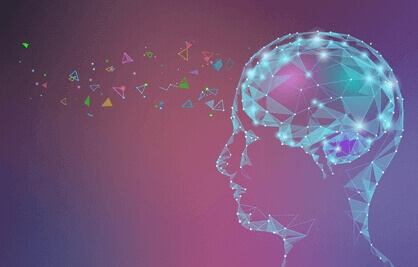Alzheimers
Treatment Areas
- +
- +
- MAIN PAGE +
- BIOGRAPHY +
- +
- GALLERY +
- CONTACT +
- +
- +
- +
- +
- +
- +
- +
- +
- +
- +
- +
- +
- +
- +
- +
- +
- +
- +
- +
- +
- Prof. Dr. +
- Treatment Areas +
- - Multiple Sclerosis
- - Epilepsy - Sara's Disease
- - Alzheimers
- - Dementia
- - Dementia, Alzheimers
- - Migraines and Headaches
- - Parkinson's Disease
- - Sleeping disorders
- - Stroke - Paralysis
- - Hand, Foot Numbness
- - Muscle Weaknesses
- - Peripheral Neuropathy
- - Brain Related Infections - Tumors - Degenerative Diseases
- - EMG - Electromyography
- - EEG Recording - Electroencephalogram
- - Long Term Video EEG
- - Visual Evoked Potentials - VEP Test
- +
- - Diagnosis and Treatment
- - What is Multiple Sclerosis?
- - Alzheimer's Disease
- - Epilepsy
- - How Should
- +
- +
Alzheimer's Disease
Alzheimer's disease is a progressive neurological disorder that causes the brain to shrink (atrophy) and brain cells to die. It is the most common cause of dementia, which is called experiencing a constant decline in thinking, behavioral and social skills that affect a person's ability to function independently. About 5.8 million people aged 65 and older in the United States are living with Alzheimer's disease. 80% of them are aged 75 and over; it is estimated that 60% to 70% of the 50 million people worldwide who are considered to have dementia have Alzheimer's.

Early signs of the disease include symptoms such as forgetting recent events or conversations that the person has experienced. As the disease progresses, the person begins to develop a serious memory impairment and further loses the ability to perform daily tasks.
There is no treatment that cures Alzheimer's disease or alters the disease process in the brain. In the advanced stages of the disease, complications such as dehydration, malnutrition or infection caused by severe loss of brain function result in death.
Symptoms of Alzheimer's Disease
Memory loss is the main symptom of Alzheimer's. Although the symptoms of Alzheimer's onset are usually minor memory problems, they include symptoms such as forgetting recent conversations and events. As the disease progresses, memory disorders worsen and other symptoms begin to develop. The person with the disease may first be aware that he has difficulty remembering things and organizing his thoughts. A family member or friend may be more likely to notice how the symptoms are getting worse. The changes in brain function associated with Alzheimer's disease lead to the growing problems mentioned below.
Memory
Everyone experiences memory loss occasionally, but memory loss due to Alzheimer's disease persists and Decays, affecting the ability to work at work or at home. Alzheimer's patients may engage in the following types of behaviors:
Repeating statements and questions many times,
Forgetting chats, appointments or events and not remembering them later,
Don't put the objects he uses routinely in the wrong places,
Getting lost in familiar places,
Do not forget the names of family members and everyday objects,
Having difficulty finding the right words to describe objects, express thoughts or participate in conversations,
Lack of ability to think and reason
The disease causes difficulty concentrating and thinking, especially about abstract concepts such as numbers. For example, he has difficulty doing tasks such as money management and paying bills. When the disease progresses, a person begins to have difficulty recognizing and coping with numbers.
Judgment and Decision Making
Alzheimer's causes a decrease in the ability to make reasonable decisions and judge in the daily routine. For example, a person may make poor or uncharacteristic choices in social interactions, or wear clothes that are not suitable for the weather. It may be more difficult to respond effectively to everyday problems, such as burning food on the January stove or unexpected driving situations.
Planning and Performing Daily Tasks
Routine activities that require sequential steps, such as planning and cooking a meal or playing a favorite game, become a struggle as the disease progresses. In the end, however, advanced Alzheimer's patients often forget how to perform basic tasks such as dressing and bathing.
Changes in Personality and Behavior
The brain changes that occur in Alzheimer's disease can affect moods and behaviors. Problems may include the following symptoms:
Depression
Lack,
Social retreat,
Mood swings,
Distrust of others
Irritability and aggression,
Changes in sleep habits,
Thoughtfulness,
Inhibition,
Delusions such as believing that an item has been stolen
Skills Preserved in Alzheimer's Disease
Some important skills are retained for a long time, even while the symptoms worsen. Among the skills that are preserved may be activities such as reading or listening to books, Deciphering and remembering stories, singing, listening to music, dancing, drawing or doing crafts. These skills can be maintained for a long time, as they are controlled by the affected brain parts later in the disease.
When Should Alzheimer's Patients See a Doctor?
A number of conditions, including treatable conditions, can cause memory loss or other symptoms of dementia. If you have any concerns about your memory or other thinking skills, you should consult your doctor for a thorough evaluation and diagnosis. If you are concerned about the thinking skills that you have observed in a family member or friend, it would be a healthy behavior to talk to the other party about your concerns and offer to see a doctor together.
Causes of Alzheimer's Disease
The exact causes of Alzheimer's disease are not fully understood. However, at a basic level, brain proteins do not function normally, which disrupts the functioning of brain cells (neurons), triggering a series of toxic events. The damage most often begins in the area of the brain that controls memory, but the process begins many years before the first symptoms. The loss of neurons spreads to other parts of the brain in a somewhat predictable way. In the late stage of the disease, the brain shrinks significantly. Neurons are damaged; they lose their connection with each other and eventually die. Scientists suggest that for most people, Alzheimer's disease is caused by a combination of genetic, lifestyle, and environmental factors that affect the brain over time. Less than 1% of the time, Alzheimer's is caused by certain genetic changes that almost guarantee a person to develop the disease. These rare events usually lead to the onset of the disease in middle age.
Risk Factors That Can Cause Alzheimer's Disease
Age: Increasing age is the biggest known risk factor for Alzheimer's disease. Alzheimer's is not part of normal aging; however, the likelihood of developing Alzheimer's disease increases as you get older.
Family History and Genetics: If a first-degree relative - your parent or sibling - has had the disease, your risk of developing Alzheimer's is slightly higher. Many of the genetic mechanisms of Alzheimer's among families remain largely unexplained, and genetic factors are Decisively likely complex. A better understood genetic factor is a form of the apolipoprotein E gene (APOE). A variation of the APOE e4 gene increases the risk of Alzheimer's disease.
Down Syndrome: Many people with Down syndrome get Alzheimer's disease. Alzheimer's symptoms tend to appear in people with Down syndrome 10 to 20 years earlier than in the general population.
Gender: When looking at studies investigating the incidence of Alzheimer's disease in two different sexes, it is seen that the incidence of Alzheimer's disease in women is slightly higher than in men.
Mild Cognitive Impairment: Mild cognitive impairment (MCI) is a decline in memory or other thinking skills that is greater than normal for a person's age, but the decline does not prevent the person from working in social or work environments. People with MCI have a significant risk of developing dementia. When the primary MCI deficiency is memory, the condition is more likely to progress to dementia due to Alzheimer's disease. The diagnosis of MCI encourages a greater focus on healthy lifestyle changes, developing strategies to compensate for memory loss, and scheduling regular doctor appointments to monitor symptoms.
Head Injury: People who have suffered severe head injuries have a higher risk of Alzheimer's disease. Several large studies have found an increased risk of dementia and Alzheimer's disease in people aged 50 years and older who have a traumatic brain injury (TBI).
Air Pollution: Studies conducted on animals have shown that air pollution particles accelerate the degeneration of the nervous system. Studies conducted on humans have found that exposure to air pollution- especially from traffic exhaust and wood burning- is associated with a greater risk of dementia.
Excessive Alcohol Consumption: It has long been known that consuming large amounts of alcohol causes a number of changes in the structure of the brain. Several large studies and reviews have proven that alcohol use disorders are linked to an increased risk of dementia, especially early-onset dementia.
Bad Sleep Habits: Research has shown that poor sleep patterns, such as falling asleep or staying asleep, are associated with an increased risk of Alzheimer's disease.
Lifestyle and Heart Health: Research has shown that the same risk factors associated with heart disease can increase the risk of Alzheimer's disease. The factors are classified as follows:
Lack of exercise,
Obesity,
Smoking or exposure to secondhand smoke,
Hypertension,
High cholesterol,
Poorly controlled Type 2 Diabetes
Lifelong Learning and Social Participation: Studies have found an association between lifelong participation in mentally and socially stimulating activities and a Decimated risk of Alzheimer's disease. A low level of education- less than a high school education- appears to be a risk factor for Alzheimer's disease.
The Diagnosis Of Alzheimer's Disease
An important part of diagnosing Alzheimer's disease includes being able to explain the symptoms, as well as the perspective of a close family member or friend about the symptoms and their impact on everyday life. In addition, the diagnosis of Alzheimer's disease is based on tests October administered by the doctor to assess memory and thinking skills. Laboratory and imaging tests can rule out other possible causes or help the doctor better identify the symptoms of dementia that are causing the disease. The diagnostic study includes the following tests:
Physical and Neurological Examination
The physical examination performed by the doctor and the tests specified in the following items will be evaluated in the general neurological health spectrum:
Reflexes,
November muscle tone and strength
Ability to get up from a chair and walk around the room,
The sense of sight and hearing,
Coordination,
Balance,
Laboratory tests,
Blood tests (Can help the doctor eliminate other potential causes of memory loss and confusion, such as a thyroid disorder or vitamin deficiencies)
Mental Status and Neuropsychological Tests
The doctor may give the person a short mental state test to assess memory and other thinking skills. Longer forms of neuropsychological testing can provide October additional details about mental function compared to people of similar age and educational level. These tests can help make a diagnosis and serve as a starting point for monitoring the progression of symptoms in the future.
Brain Imaging

